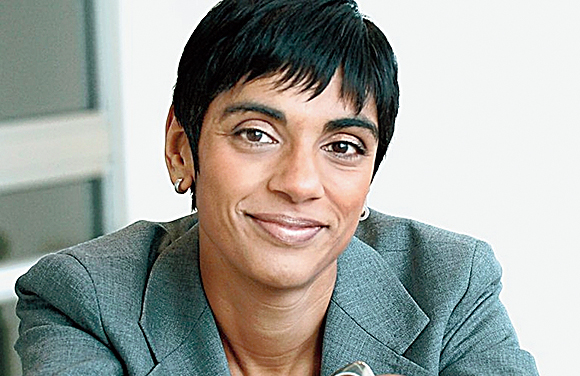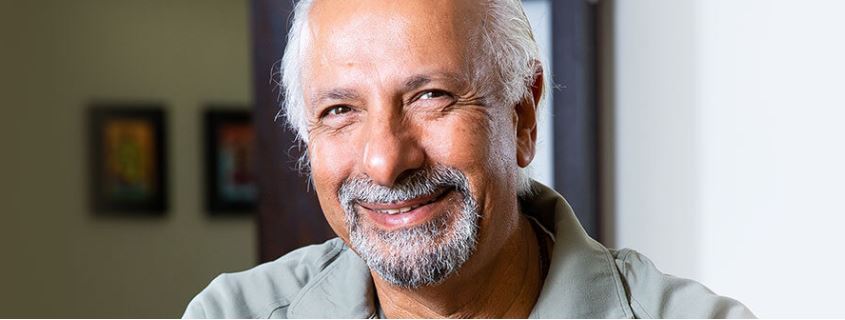Nigel Farage’s Brexit Party, which was set up only six weeks ago, has triumphed in the elections to the European Parliament, winning 28 out of the 64 seats to be declared by lunch time on Monday bagging 32 per cent of the votes cast.
The Conservative Party, which was left with only three MEPs (Members of the European Parliament), down 15 from 2014, was knocked into fifth place with only 9 per cent of the vote.
The BBC political editor Laura Kuenssberg described it as “the worst performance for the Conservatives since the 1830s”.
“If this was a first-past-the-post election (rather than a proportional system), they would not have taken a single seat,” she said.
Brexiteer and Conservative MEP for the South East Daniel Hannan — one of three Tory MEPs elected so far — agreed it was his party’s “worst ever result”.
“We voted to leave (the EU) and we haven’t left — it’s that simple,” he said.
Labour, too, fared badly, with 10 MEPs elected but losing 8 with 15 per cent of the vote.

TV presenter Reeta Chakrabarti impressed on BBC.
An exultant Farage, who wants Britain to leave the EU by October 31 at any cost, declared: “Never before in British politics has a party just six weeks old won a national election. If Britain does not leave the EU on October 31st, these results will be repeated at a general election. History has been made. This is just the beginning.”
He claimed the results had delivered “a big, simple message — which is we’ve been badly let down by two parties who have broken their promises — we have topped the poll in a fairly dramatic style. The two party system now serves nothing but itself. I think they are an obstruction to the modernising of politics... and we are going to take them (the Tories and Labour) on.”
He also demanded a seat at the top table in any further UK government negotiations with the EU. However, a calmer analysis shows the results are much more complex.
It was paradoxically a very encouraging might for two anti-Brexit parties which want the UK to remain a member of the EU — the Liberal Democratic Party and the Green Party.
The UK is electing 73 MEPs from across 12 regions — 11 have so far been declared. Turnout was 37 per cent. The Lib Dems, who beat the Brexit party into second place in London, have 15 MEPs, up from 14, with 21 per cent of the vote, while the Greens have seven MEPs, up four, with 12 per cent of the vote.
One of the new Lib Dem stars is Indian businessman Dinesh Dhamija, 69, who made his name by setting up an online travel company called Ebookers. The son of a diplomat, Dhamija, who might be the Lib Dem candidate at the next mayoral election in London, was educated at Mayo College, King’s School, Canterbury, and Fitzwilliam College where he read law. He was elected in London.
Incidentally, another Indian who impressed on the night with clear, incisive analysis was the BBC TV presenter of the election special, Reeta Chakrabarti. “It was a great night to be on, such turbulence! No I don’t believe in theatrics, let the story speak for itself,” she said.
Farage’s former party, UKIP (the United Kingdom Independence Party), lost all their 24 seats.
Anti-Brexit parties — those in favour of another referendum — collectively took about 40 per cent the vote, compared with 35 per cent for the two parties (the Brexit party and UKIP) in favour of leaving the EU without a deal.
Lib Dem leader Sir Vince Cable commented: “Our clear, honest, unambiguous message has won us our best ever European election result, and pushed Corbyn’s Labour into third place. We have shown ourselves to be the strongest Remain force in UK politics.”
He said the results were a message for Labour to “get off the fence” over Brexit — and back Remain. His deputy, Jo Swinson, said “the results should give hope to all of the people out there who want to stop Brexit”, and that they “should not be giving up without a fight”.
“When there is such a general shambles over Brexit, then a further referendum is the best way out of the impasse,” she said.
Sian Berry, co-leader of the Greens, commented: “There is clear evidence from this of strong support for the UK remaining in the European Union, but also for tackling the causes of Brexit – the massive damage done to so many communities by austerity, tax-dodging and diminution of workers’ rights.”
Sir John Curtice, the UK’s leading polling expert and professor of politics at the University of Strathclyde, told the BBC the results showed just how polarised the country had become – “it is a draw”.
However, Brexiteer candidates in the Tory leadership contest, such as Boris Johnson, are interpreting the results as an indication that they must pursue a hard line over the UK’s withdrawal from the EU – or risk another electoral disaster at the general election.
Writing in The Daily Telegraph, he said voters in the EU election had issued a “crushing rebuke” to the Conservatives.










